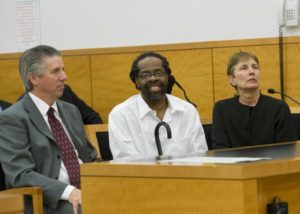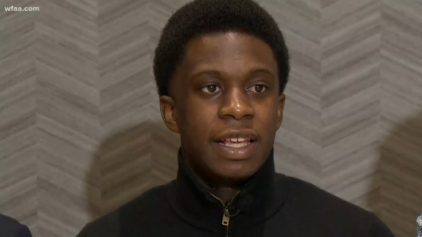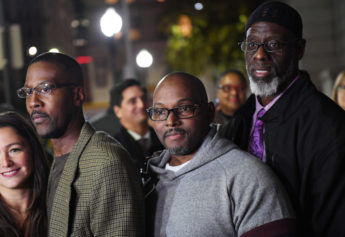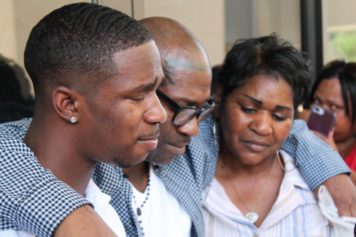
Robert Hill, one of the three half-brothers whose murder conviction was thrown out thanks to prosecutors’ integrity units.
For nearly 5,000 convicted citizens, the rapidly spreading use of “integrity units” among prosecutors could grant them their freedom and have their convictions thrown out.
The implementation of these units is still relatively new, but the results have already been rather impressive for some.
Over the last seven years, more than a dozen prosecutors’ offices have established their own special teams of integrity units that review old cases to ensure justice was actually served.
These units revisit wrongful-conviction claims and have already gotten more than 60 cases tossed out so far, including the case of three half-brothers who were serving time for a decades-old murder.
Robert Hill, one of the three brothers in the case, was finally a free man last month after spending 27 years behind bars. (Alvena Jennette was released on parole in 2007; Darryl Austin died in prison 14 years ago.)
As it turned out, prosecutors were able to discredit former New York Police Department detective Louis Scarcella and one of the key witnesses he provided in the case.
Whether it’s crooked cops, dirty detectives or tainted evidence, prosecutors’ integrity units try to find any sign of a wrongful conviction and get that convicted person another day in court.
As a collective whole, units all across the nation have agreed to revisit more than 4,900 cases.
There has been a growing concern over the number of false convictions in America as the country’s average number of exonerations has remained at 68 a year since 1999.
“What we’ve seen take place over the last 15 years has, I think, shaken most career prosecutors to their core,” said Scott McNamara, district attorney in central New York’s Oneida County. “We had to respond to it.”
McNamara’s unit is only a year old, but it is steadily working on three cases so far.
Another unit in Dallas that was started in 2007 has freed more than 30 people and reviewed roughly 400 cases.
Exoneration advocacy groups are happy about the efforts by prosecutors to implement these integrity units, but they also make it clear that the units have a difficult task ahead of them. And some people question whether prosecutors are trying to rethink convictions or strengthen them.
“It’s a catchy name to say you’re a conviction integrity unit, but you have to be able to answer some of these questions,” said the co-founder of the Innocence Project, Barry Scheck.
For some teams, the results are more impressive than others.
While some units are continuing to get large numbers of cases tossed out, other units are only finding up to 12 wrongful convictions after investigating more than 150 cases.
The units have also faced concerns over how quickly they are able to work.
Complaints have surfaced that the teams aren’t able to work quickly enough and many innocent people are still spending long years behind bars before their cases get thrown out.
For Hill, however, he said he didn’t have much to complain about.
Despite spending nearly three decades of his life in jail, Hill said he is just “happy to be out” and that might not have been possible without the aid of these specialty teams.


